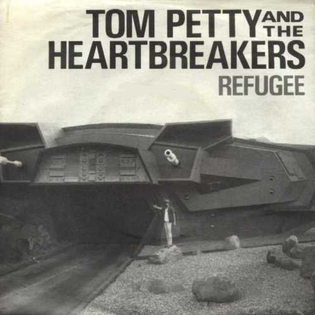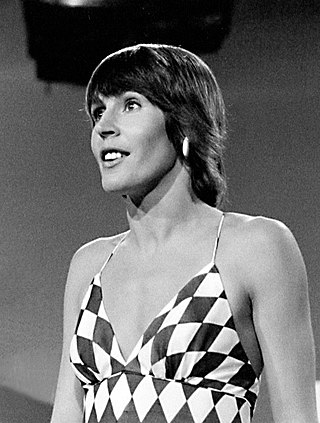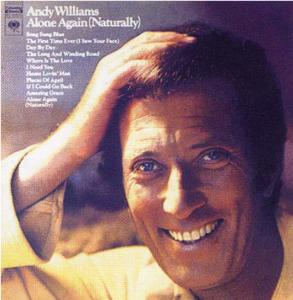
"That'll Be the Day" is a song written by Buddy Holly and Jerry Allison. It was first recorded by Buddy Holly and the Three Tunes in 1956 and was re-recorded in 1957 by Holly and his new band, the Crickets. The 1957 recording achieved widespread success. Holly's producer, Norman Petty, was credited as a co-writer, although he did not contribute to the composition.

"I Can't Get Next to You" is a 1969 single recorded by the Temptations and written by Norman Whitfield and Barrett Strong for the Gordy (Motown) label. The song was a No. 1 single on the Billboard Top Pop Singles chart for two weeks in 1969, from October 18 to October 25, replacing "Sugar, Sugar" by the Archies and replaced by "Suspicious Minds" by Elvis Presley. The single was also a No. 1 hit on the Billboard Top R&B Singles for five weeks, from October 4 to November 1, replacing "Oh, What a Night" by the Dells, and replaced by another Motown song, "Baby I'm For Real" by the Originals.

"Baby I Need Your Loving" is a 1964 hit single recorded by the Four Tops for the Motown label. Written and produced by Motown's main production team Holland–Dozier–Holland, the song was the group's first Motown single and their first pop Top 20 hit, making it to number 11 on the US Billboard Hot 100 and number four in Canada in the fall of 1964. It was also their first million-selling hit single.

"Nobody Does It Better" is a power ballad and the theme song for the James Bond film The Spy Who Loved Me (1977). Composed by Marvin Hamlisch with lyrics by Carole Bayer Sager, the song was produced by Richard Perry and performed by Carly Simon. It was the first Bond theme song to be titled differently from the name of the film since Dr. No (1962), although the phrase "the spy who loved me" is included in the lyrics. The song was released as a single from the film's soundtrack album, and became a major worldwide hit.

"Free Fallin'" is the opening track from American musician Tom Petty's debut solo album, Full Moon Fever (1989). The song was written by Petty and his writing partner for the album, Jeff Lynne, and features Lynne on backing vocals and bass guitar. The duo wrote and recorded the single in two days, making it the first song completed for Full Moon Fever.

"Wooden Heart" is a pop song recorded by Elvis Presley. The composition is based on a German folk song "Muss i denn" and it was featured in the 1960 Elvis Presley film G.I. Blues. The song was a hit single for Presley in the UK Singles Chart, reaching No. 1 for six weeks in March and April 1961.

"Don't Let Me Be Misunderstood" is a song written by Bennie Benjamin, Horace Ott and Sol Marcus for American singer-songwriter and pianist Nina Simone, who recorded the first version in 1964 for her album Broadway-Blues-Ballads. "Don't Let Me Be Misunderstood" has been covered by many artists. Two of the covers were transatlantic hits, the first in 1965 by the Animals on their album Animal Tracks, which was a blues rock version; and in 1977 by the disco group Santa Esmeralda on their album Don't Let Me Be Misunderstood, which was a four-on-the-floor rearrangement. A 1986 cover by new wave musician Elvis Costello found success in Britain and Ireland.

"Refugee" is a song recorded by American rock band Tom Petty and the Heartbreakers. It was released in January 1980 as the second single from their album Damn the Torpedoes, and peaking at No. 15 on the Billboard Hot 100 singles chart. The song is in compound AABA form.

"I Need to Know" is a song written by Tom Petty and recorded by American rock band Tom Petty and the Heartbreakers. It was released in 1978 as the first single from their second album You're Gonna Get It!. It peaked at #41 on the Billboard Hot 100 singles chart in 1978. This song as well as "Listen to Her Heart" was already being played live in concert as early as June 14, 1977, as is evidenced in a performance on Germany's music television show "Rockpalast".

"People Got to Be Free" is a song released in 1968 by the Rascals, written by Felix Cavaliere and Eddie Brigati and featuring a lead vocal from Cavaliere.

"Change of Heart" is a song recorded by American rock band Tom Petty and the Heartbreakers. It was released in February 1983 as the third single from their fifth album Long After Dark. It peaked at number 21 on the U.S. Billboard Hot 100 chart. The B side, "Heartbreakers Beach Party," was exclusive to this single and remained unreleased on CD until its inclusion on the 1995 box set Playback.

"Here Comes My Girl" is a song written by Tom Petty and Mike Campbell, and recorded by Tom Petty and the Heartbreakers, their third single from their breakthrough hit 1979 album, Damn the Torpedoes. It peaked at number 59 on the U.S. Billboard Hot 100 on May 24, 1980.

"Don't Come Around Here No More" is a song written by Tom Petty of Tom Petty and the Heartbreakers and Dave Stewart of Eurythmics. It was released in February 1985 as the lead single from Tom Petty and the Heartbreakers' Southern Accents album.

"Listen to the Music" is a song by American rock band the Doobie Brothers, released on their second album, Toulouse Street (1972). The song was written by Tom Johnston and was the band’s first major hit. In 1994, it received a remix by Steve Rodway a.k.a. Motiv8 in 1994, which eventually peaked at No. 37 in the UK.

"Never Gonna Fall in Love Again" is a song co-written and recorded by American pop rock artist Eric Carmen. It was released as the second single from Carmen's self-titled debut solo album and peaked at No.11 on the US Billboard Hot 100 chart in June 1976, remaining in the Top 40 for ten weeks. The song reached No.1 on the Billboard Easy Listening chart. In Canada, it was a hit at No. 1 on both charts.
"I Like It Like That" was a 1964 hit song by Motown group The Miracles on its Tamla label subsidiary. This is not the Chris Kenner hit song of the same name but a Miracles original, written by Miracles members Smokey Robinson and Marv Tarplin, and is included on the group's first greatest hits album, Greatest Hits from the Beginning. It was also the title song from their deleted 1964 album of the same name.

"Mainstreet" is a song written and recorded by Bob Seger & The Silver Bullet Band. It was released in April 1977 as the second single from the album Night Moves. The song peaked at number 24 on the U.S. Billboard Hot 100 and has become a staple of classic rock radio; it also reached number one on the Canadian Singles Chart.

Australian-American singer Helen Reddy (1941–2020), often referred to as the "Queen of 70s Pop", recorded 18 studio albums, seven of which have achieved sales of 500,000 units in the US for which they were awarded Gold certification by the Recording Industry Association of America. One of those seven, I Am Woman, eventually went Platinum by reaching sales of one million copies, and her first compilation album, Helen Reddy's Greatest Hits, was awarded Double Platinum status in 1992 for hitting the two million sales mark. The respective US and Canadian album charts in Billboard and RPM magazine each had appearances by 10 of these LPs during the 1970s.

Alone Again (Naturally) is the thirtieth studio album by American pop singer Andy Williams, released in September 1972 by Columbia Records and mainly consisting of songs originated by other artists. For its release in the UK, the album was titled The First Time Ever (I Saw Your Face), and three of the songs were replaced with the 7-inch single tracks "Who Was It?" and "Marmalade, Molasses & Honey" and a recording that was not released on vinyl in the U.S., "If You're Gonna Break Another Heart".

Ear Candy is the ninth studio album by Australian-American pop singer Helen Reddy, released on 25 April 1977 by Capitol Records. The album included a modern take on the doo-wop genre, a Cajun number that gave the Melbourne native her first and only appearance on Billboard magazine's Country chart, and a dark self-parody on which Reddy proclaims: "I don't take no shit from nobody". Unusually, half of the songs recorded for Ear Candy were co-written by Reddy herself, including the second single, "The Happy Girls", Reddy's first self-penned A-side single since "I am Woman". The album's first single, a remake of the 1964 Cilla Black hit "You're My World", gave Reddy a final Top 40 hit.



















